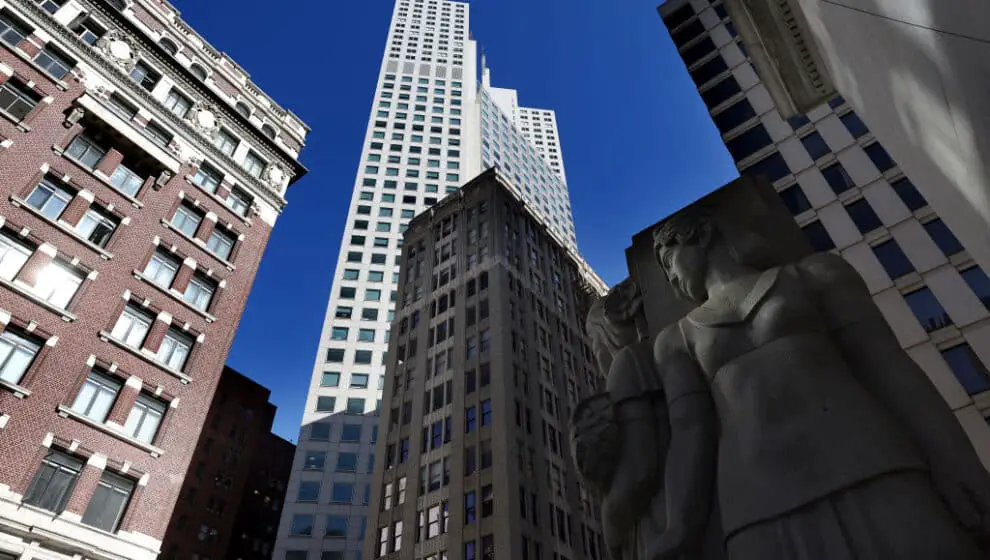Investors and economists predict that the commercial-real-estate market will be the next sector to be struck by financial difficulties—as long-term realities of remote work kick in.
Key Details
- The financial industry is still reeling from the collapse of Silicon Valley Bank, but investors are turning their attention to commercial real estate, which could be the next sector affected.
- Commercial real estate was one of the areas most affected by the shift to remote work as fewer businesses need to rent office spaces.
- Some building owners are transitioning their properties into more profitable opportunities, but this will take time. Meanwhile, property values are declining, Fortune reports.
- As commercial-real-estate prospects look increasingly grim, Morgan Stanley analysts predict something “worse than in the Great Financial Crisis.”
Why it’s news
Around half of the $2.9 trillion worth of commercial mortgages will need to be renegotiated in the next two years. When this happens, lending rates will have increased dramatically from the last time these numbers were decided. Regional banks have contributed 70% to 80% of all new loans in the previous cycle, meaning a commercial-real-estate collapse could seriously affect these smaller banks.
With the current higher interest rates, commercial-real-estate lending standards are much stricter than just a few years ago. “The banking crisis will only exacerbate the existing lack of liquidity. That in turn will increase the risk of defaults, distress, and delinquencies, as the industry is largely built on debt,” Fortune’s Alena Botros reports.
A market collapse would not just affect the commercial real estate sector. Disruption of this size would affect landlords, and the banks who lent to them, and would eventually seep down to business communities, private funders, and more, Fortune reports.
Backing up a bit
The economy is facing multiple challenges this year, but among the top issues is the condition of commercial real estate—at least according to Elon Musk.
A global capital markets newsletter, the Kobeissi Letter, reported that more than $2.5 trillion of real estate debt will mature in the next five years.
“Refinancing these loans is going to be incredibly expensive and likely lead to the next major crisis,” the Letter tweeted. “The worst part? 70% of commercial real estate loans are owned by small banks. Rapidly rising rates are teaching everyone a valuable lesson. There’s no such thing as ‘free’ money.”
The Letter blamed part of this impending crisis on rising interest rates.
In response to the Letter’s comments, Twitter CEO Elon Musk tweeted, “This is by far the most serious looming issue. Mortgages too.”

